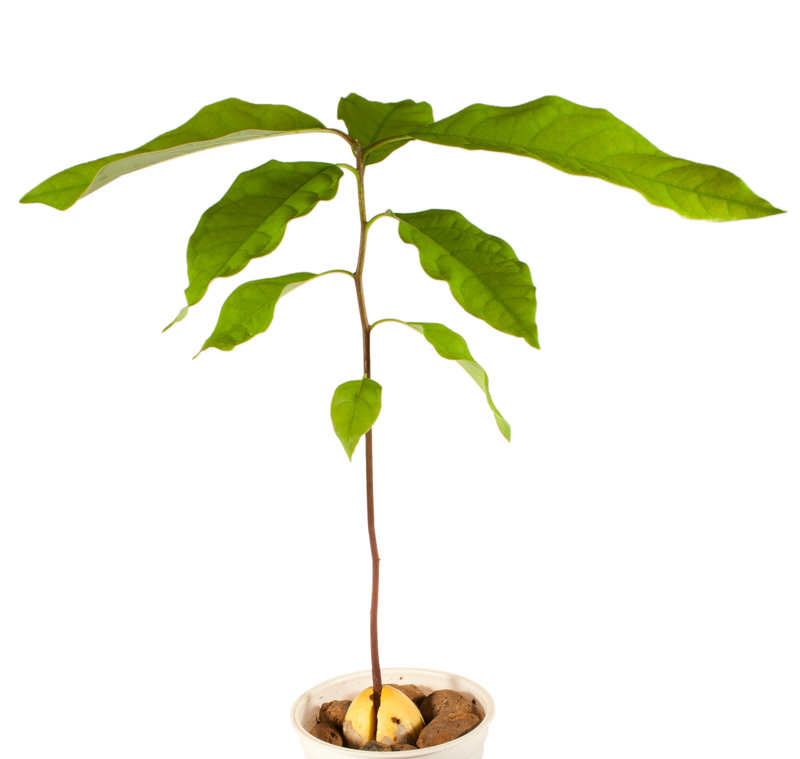From Trash to Treasure: The Miracle of Organic Waste Transformation
Posted on 27/05/2025
From Trash to Treasure: The Miracle of Organic Waste Transformation
Organic waste has long been a pressing environmental issue, filling landfills and producing greenhouse gases that contribute to climate change. Yet, in recent years, modern innovations have unlocked the miracle of organic waste transformation, turning yesterday's trash into today's treasure. This comprehensive guide dives into how organic waste can be converted into gold for our farms, fuel for our machines, and even wealth for our communities. If you're interested in sustainability, environmental science, or just curious about how your kitchen scraps could become a vital resource, read on to discover how the world is changing its view on waste.

Understanding Organic Waste: What Is It?
Before we explore the process of turning trash into treasure, it's essential to understand what organic waste involves. Organic waste is any waste material that comes from plants or animals and can decompose naturally.
Common Types of Organic Waste
- Food scraps - vegetable peels, fruit rinds, meat bones, dairy products
- Yard waste - grass clippings, leaves, branches
- Wood and paper products - untreated wood shavings, paper towels
- Animal manure - from livestock or pets
Unlike inorganic waste (plastic, metals, and synthetic materials), organic waste materials can be processed and returned safely to the earth, completing a natural cycle of renewal.
The Environmental Impact of Organic Waste
When organic materials are sent to landfills, they decompose anaerobically (without oxygen), creating methane--a greenhouse gas 25 times more potent than carbon dioxide. In addition, valuable nutrients are locked away in landfills rather than enriching soils or generating energy.
- Methane production contributes to climate change
- Loss of potential soil fertilizers
- Wasted economic opportunity
- Groundwater contamination from leachate
But, the transformation of organic waste reverses these negative impacts, turning problems into sustainable solutions.
The Miracle of Organic Waste Transformation
What Is Waste Transformation?
Organic waste transformation refers to various processes that change organic trash into valuable resources, such as compost, bioenergy, and bio-based products. Instead of ending up in a landfill, organic materials can be processed and recycled in sustainable, efficient ways.
Key Methods for Transforming Organic Waste:
- Composting - Biological decomposition to create nutrient-rich soil amendments
- Anaerobic digestion - Breaking down waste without oxygen to produce biogas and fertilizer
- Vermicomposting - Using worms to process organic materials into high-value compost
- Biochar production - Heating waste in limited oxygen to create carbon-rich charcoal for soil improvement
- Industrial bioprocessing - Converting waste into bioplastics, enzymes, and other bio-based materials
Composting: Nature's Recycling Process
Composting is perhaps the best-known process for organic waste conversion. By combining green materials (vegetable scraps, grass clippings) with browns (fallen leaves, paper towels), and introducing air and moisture, natural microbes break down the material into humus--a rich, dark soil conditioner.
Benefits of Composting
- Reduces landfill waste volume
- Creates valuable, nutrient-dense compost for gardens and farms
- Improves soil structure and water retention
- Suppresses plant diseases and pests
- Lowers greenhouse gas emissions by preventing methane formation
How To Start Composting At Home
- Choose a composting system: Bin, tumbler, or simple pile--whatever works for your space.
- Collect kitchen and yard waste: Include only plant-based scraps and uncoated paper.
- Mix greens and browns: Aim for a 2:1 ratio of browns to greens.
- Keep it moist and aerated: Turn the pile weekly for best results.
- Wait and harvest: In a few months, you'll have rich compost for your plants.
Anaerobic Digestion: Turning Waste Into Energy
Anaerobic digestion (AD) is a process where microbes break down organic matter in the absence of oxygen, resulting in the production of biogas--a renewable energy source--and digestate, a nutrient-rich fertilizer.
Key Benefits of Anaerobic Digestion
- Generates biogas: Can be used for heating, electricity, or transport.
- Reduces organic landfill waste and corresponding emissions.
- Produces natural fertilizer for farms and gardens.
- Promotes local energy independence and economic growth.
AD is employed in both rural and urban settings worldwide, serving municipalities, farms, and even large food manufacturers seeking sustainable solutions for their organic waste streams.
Vermicomposting: Worms to the Rescue
Vermicomposting harnesses the digestive power of worms--mainly red wigglers--to quickly convert kitchen waste into highly valuable worm castings, a premium soil amendment.
Why Vermicomposting Is Unique
- Faster decomposition: Worms can break down food waste more rapidly than traditional composting.
- High-value output: Worm castings are packed with beneficial microbes and nutrients.
- Compact systems: Perfect for apartments and urban dwellers without outdoor space.
- Educational and fun: Great for teaching kids and community groups about sustainability.
Biochar: Locking Up Carbon and Enriching Soil
Biochar is a charcoal-like substance produced by heating organic waste in a low-oxygen environment--a process known as pyrolysis. Unlike compost, which breaks down quickly, biochar is highly stable and can remain in soil for hundreds to thousands of years, locking up carbon and improving soil health.
Advantages of Biochar Production
- Sequesters carbon and mitigates climate change.
- Enhances soil fertility and water retention.
- Reduces greenhouse gas emissions from agricultural soils.
- Provides a use for agricultural waste such as husks and stalks.
Industrial Bioprocessing: Creating Value-Added Products
Cutting-edge biotechnology now allows for the conversion of organic waste into high-value products like bioplastics, biofuels, enzymes, and even pharmaceuticals. Through fermentation and enzymatic processes, waste materials that once polluted our environment are now foundational to the circular economy.
Examples of Value-Added Products From Organic Waste
- Biodegradable plastics (reducing reliance on petroleum-based polymers)
- Industrial enzymes (using waste as feedstock for pharmaceuticals and food production)
- Cellulosic ethanol (turning plant waste into renewable fuel)
- Animal feed and pet food (upcycling safe food scraps)
This innovative field is creating jobs, attracting sustainable investments, and writing a new chapter in global waste management.
The Economic and Social Benefits of Organic Waste Transformation
The benefits of transforming organic waste are multi-layered, reaching far beyond the environment. Communities, businesses, and individuals all stand to gain from innovative organic waste recovery and valorization solutions.
Key Economic and Social Advantages
- Job creation: New industries in waste collection, processing, and product creation
- Local resource production: Compost, energy, and feed produced close to home
- Cost savings: Reduced landfill fees, fertilizer costs, and utility bills
- Community engagement: Composting and recycling initiatives foster local pride and environmental stewardship
Case studies worldwide--from India's composting cooperatives to Sweden's biogas-powered buses--demonstrate that organic materials recovery can transform economies and support resilient communities.
Challenges in Scaling Up Organic Waste Solutions
Despite the promise of organic waste transformation, several barriers must be overcome:
- Lack of infrastructure: Many cities still lack separate collection and processing facilities for food and yard waste
- Public awareness and participation: Success depends on people sorting waste correctly
- Economic feasibility: Initial investments in technology and logistics may be high
- Contamination: Non-organic items (plastic, glass) can interfere with processing
However, governments, private enterprises, and NGOs are making significant strides in addressing these hurdles, recognizing the immense potential of turning waste into resources.
How You Can Participate
Anyone can be part of this ongoing miracle! Here's how you can play your role in the organic waste transformation revolution:
- Start composting at home, in your backyard or even in a small indoor bin
- Join community composting or food waste collection programs
- Support businesses and products that use recycled organic materials
- Advocate for separate waste collection and composting in your local area
- Educate others about the value of organic waste management

The Future of Organic Waste Management
Organic waste transformation is just beginning to show its potential on the world stage. With technological advancements, greater investment, and stronger public support, tomorrow's cities could be resource hubs fueled by what was once regarded as mere garbage. The shift to a circular economy--where waste becomes a resource, not a problem--is key to building a sustainable future.
Innovations to Watch
- Smart composting using IoT sensors for optimized processing
- Advanced biorefineries that can process multiple waste streams simultaneously
- Blockchain for waste tracking to ensure transparency and accountability
- Genetically engineered microbes designed to break down even complex organic materials
Organic waste transformation truly is a miracle of modern sustainability, blending ancient wisdom with cutting-edge innovation.
Conclusion: Transforming Trash Into a Sustainable Treasure
What once filled our trash bins and polluted our air is now the foundation for greener cities, healthier soils, and cleaner energy. By recognizing the miracle in every banana peel and blade of grass, we can turn organic waste from a source of pollution into a treasure trove of opportunity. The movement is catching on worldwide--will you be a part of it?
Let's turn our organic trash into sustainable treasure--for our planet, our communities, and future generations.
Latest Posts
Ideas for a dog-friendly, flourishing garden
Understanding the Basics of Container Gardening
Elegant Hedge Shapes for a Stunning Garden



